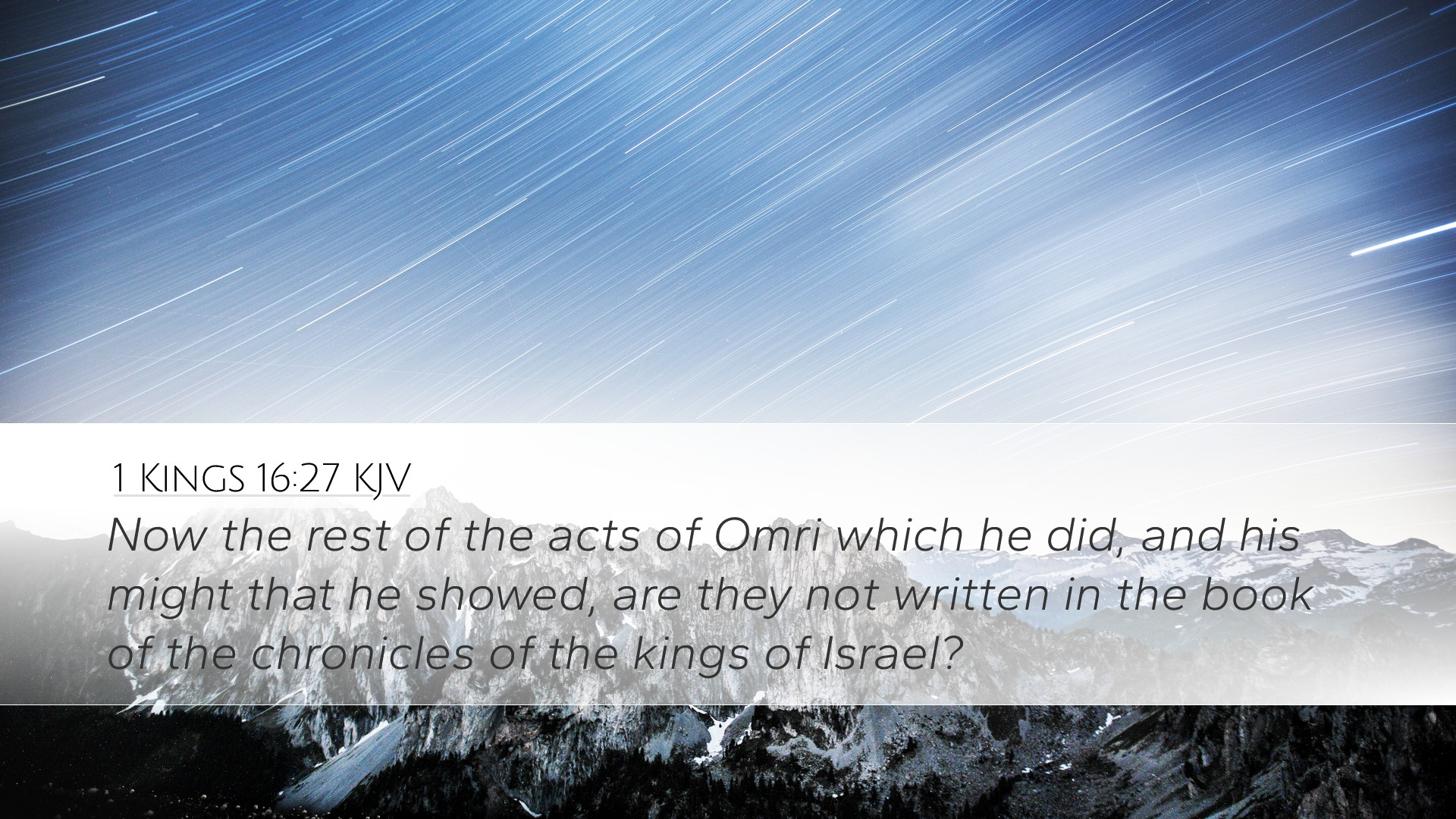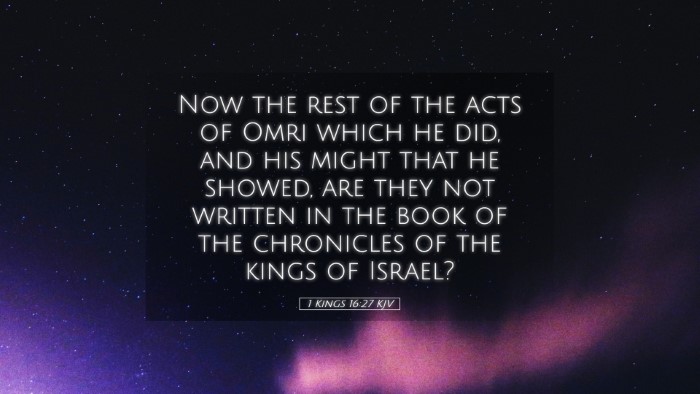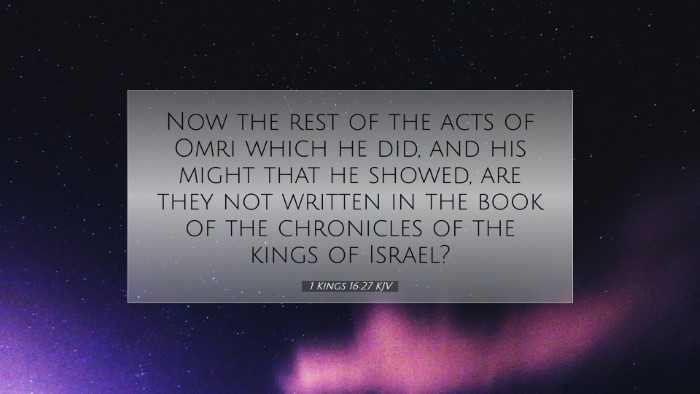Commentary on 1 Kings 16:27
Text of the Verse: "And the rest of the acts of Omri, which he did, and his might that he shewed, are they not written in the book of the chronicles of the kings of Israel?" (1 Kings 16:27, KJV)
Introduction
This verse serves as a concluding remark in the narrative of King Omri's reign over Israel. It is part of the overarching historical account in the Books of Kings, which focuses on the various rulers of Israel and Judah. Omri, though not a godly king, played a crucial role in the political landscape and set a direction that influenced subsequent kings.
Insights from Matthew Henry
Matthew Henry, in his commentary, emphasizes the brevity and the significance of Omri's achievements. He notes that while much of Omri's reign is not detailed in the Scriptures, it is acknowledged that he was a powerful ruler who left a notable mark on history. This acknowledgement offers a reflection on the nature of earthly success and the limitations of human legacy.
Henry states that Omri's legacy is recorded in the book of the chronicles, highlighting the idea that divine judgment often transcends earthly glory. Omri made significant contributions to the governance and military strength of Israel, yet he also led the nation further into idolatry. The tension between his might and the spiritual status of Israel reflects a central theme in the history of the Israelite kings—the contrast between political power and covenant faithfulness.
Insights from Albert Barnes
Albert Barnes provides a more historical context to Omri's reign, noting that Omri is significant for founding the city of Samaria, which would become the capital of the Northern Kingdom of Israel. Barnes suggests that Omri's military prowess and political acumen were pivotal in solidifying Israel's territorial integrity during a tumultuous time.
He also points out that the 'book of the chronicles' referenced in this verse likely contained additional details about Omri’s accomplishments, which are now lost to history. Barnes conveys the notion that the record of one's life may be minimal yet is maintained in God’s record, indicating the eternal significance of one's actions before God.
Insights from Adam Clarke
Adam Clarke elaborates on Omri's character, affirming that while he was a strong and influential king, his reign was marred by a dedication to Baal worship, which led the nation into further apostasy. Clarke remarks that Omri's military exploits may have brought temporary security but failed to secure Israel spiritually.
Clarke’s analysis delves into the concept of divine evaluation versus human appraisal—what appears to be might and success in human terms may not be aligned with God’s standards. This dichotomy poses a significant point for reflection for leaders and followers of faith, urging them to consider the impact of their actions not just in terms of power but in their faithfulness to God’s covenant.
Theological Implications
As we analyze 1 Kings 16:27 through the insights of various commentators, certain theological themes emerge:
- The Nature of Legacy: Omri's reign illustrates that a legacy built on human power and military might is transient if it lacks spiritual integrity. This challenges contemporary believers to reflect on what kind of legacy they wish to leave.
- The Sovereignty of God: Each king, despite their earthly achievements, is ultimately subject to God’s sovereignty. The verse reminds readers that God’s record of history includes every act, both good and evil.
- The Call to Faithfulness: Omri’s reign exemplifies a warning against the seductive nature of power that can lead leaders away from their divine calling. Theological reflection on leadership emphasizes integrity and dedication to God above all.
Conclusion
In summary, 1 Kings 16:27 serves as a poignant reminder of the interplay between earthly power and divine faithfulness. The insights gathered from the public domain commentaries of Matthew Henry, Albert Barnes, and Adam Clarke illuminate the complexities of Omri’s reign while urging current and future leaders to prioritize their relationship with God above the pursuit of power.
This verse should inspire pastors, students, theologians, and Bible scholars to engage deeply with the texts, reflecting on the footsteps of those who walked before us and the ways in which their legacies influence our faith journey today.


